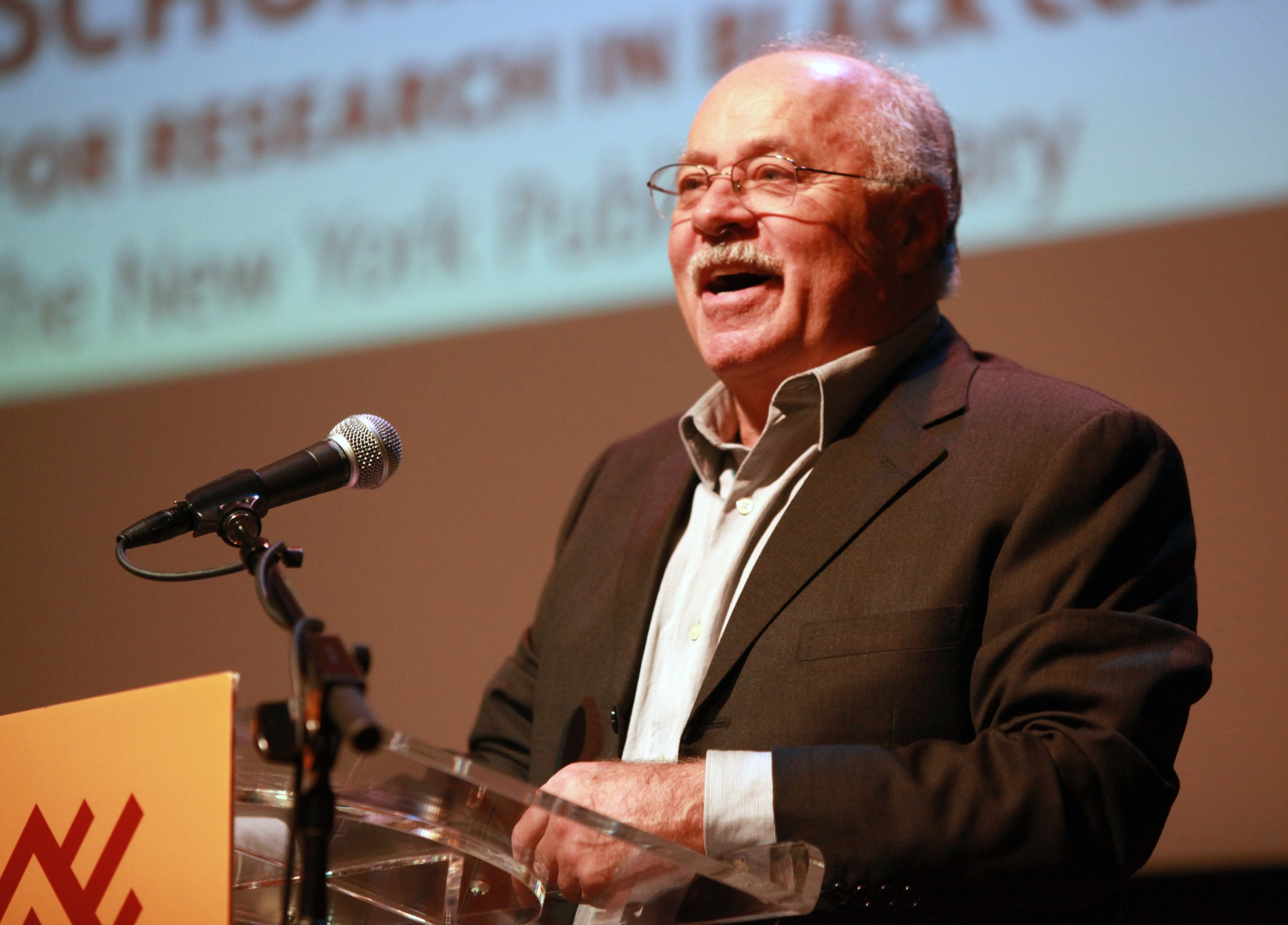
EULOGY
Juan Flores
by Arcadio Díaz-Quiñones
We are indebted to Juan Flores’s teaching and mentoring, to his widely quoted books Divided Borders: Essays on Puerto Rican Identity (1992) or From Bomba to Hip-Hop: Puerto Rican Culture and Latino Identity (2000). We owe much to his untiring efforts, delving into archives, libraries and sound recordings, and into the vast storehouse of the memory of friends and collaborators. We admire the ways he delineated and at times defiantly transformed the contours of what we know today as diasporic and Latino cultural studies. He spent the last years of his life with Miriam Jiménez passionately building a solid foundation for Afro-Latin@ Studies. Together they created a public space and a compelling Reader in order to encourage open discussion and rethinking of the racial experience of Latinos, challenging embedded racism and racial categories.
Sadness will not have the last word. We are gathered here to affirm the possibility of transcendence despite death and loss. Like all of you, I have spent the last several days reminiscing about my first encounter with Juan. I have also been rereading his texts and listening to his voice and to some of the musicians he liked and worked with, Eddie Palmieri, los Pleneros, and Raquel Z. Rivera. I have been deeply moved while listening these days to Miguel Zenón’ s new album, Identities are Changeable. We of course had heard Juan’s voice and read his essays, but never this way, so differently, now that his life is completed.
Let us remember together some of his key words. I would like to briefly concentrate on words used by Juan when writing about musicians such as Rafael Hernández, Pedro Flores, and Graciela for the catalogue of the Nueva York exhibit, sponsored by the New York Historical Society and the Museo del Barrio in 2010. There, Juan shares his knowledge about the spell of music. But he goes beyond. With his poetic gift of condensation, he invites us to practice the freedom displayed by musicians and dancers who are able to create something new out of the resources of a strong tradition:
[…] creative history is not about erasure and discarding but, rather, attests to continuities and reinvention. “Lamento borincano” has enjoyed dozens of salsa versions, and has even made its appearance in hip hop, merengue, reggaeton, and scores of other more recent musical styles and formats. Songs by Pedro Flores continue to inspire modern day-dance and jazz bands, even boldly experimental ones like the Fort Apache Band and Grupo Folklórico y Experimental Neoyorkino. […]
Flores, “Before Mambo Time: New York Latin Music in the Early Decades (1925-45)” in Nueva York: 1613-1945, Edward J. Sullivan, ed., p. 267.
Creative history, continuities, reinvention: those words take me back to the first time I met Juan. It was here in Manhattan in the early seventies. Frank Bonilla put us in touch. Juan was part of a vibrant group of students, radical activists and artists laying the foundation for the Centro de Estudios Puertorriqueños. This ambitious project entailed not only building a new and complex archive of books, leaflets, pamphlets, photos and manuscripts. It fundamentally implied going against dominant historical narratives, writing stories that were waiting to be told. The challenges were daunting. The context was shaped by the long Cold War, the militarization of Puerto Rico, the Civil Rights and Black Power movements, the opposition to the Viet Nam War, constant government surveillance, and the purging of leftists and nationalists by both the United States and the Puerto Rican governments. The climate grew more heated by the day with the debates about the Cuban Revolution, the emerging critical voices of the New Left, and by the mobilizations of Chicanos, Native Americans, Asian Americans and puertorriqueños, Black Panthers and Young Lords.
When I met him for the first time, Juan Flores was a young progressive intellectual, radicalized during his days in Stanford and San Francisco. Perhaps those of you who met him later as a professor at Hunter, Queens or New York University do not know how opposed he was to the contemplative neutrality of academic institutions. But in the early 1970s he was an activist committed to the social and political struggles in the Puerto Rican community in New York, proudly declaring his independence from the traditional academy where he had been trained. In 1978, along with José Luis González, Ricardo Campos, and Ángel Quintero Rivera, we participated in a symposium held, of all places, at Princeton University. Juan read a pioneering essay co-written with Ricardo Campos titled “Migración y cultura nacional puertorriqueñas: perspectivas proletarias.” It was included in a volume published by Ediciones Huracán in Puerto Rico in 1979, Puerto Rico: identidad nacional y clases sociales (coloquio de Princeton). This bold and provocative piece must have been one of the first essays on Bernardo Vega, Pedro Pietri and our diasporic tradition. It was a deliberate act of foundation. I remember clearly Juan´s passion and tone. He became my teacher. We remained friends since then.
Although we were learning always from the vivid voices of writers, poets, musicians and visual artists, that was still a time when historical essays and books on Puerto Rican migration and cultural life written by Puerto Ricans in Spanish or English were few and far between. The history of migration was almost totally ignored during my years as a student in Puerto Rico. Most of my family had migrated to New York in the late 1940s and were part of that lived experience, so I was eager to acquire a knowledge of the politics and history I did not have. I was immediately impressed by the efforts undertaken by Juan and others. They were producing the tools that would enable a novel history of capital and colonial power, social classes, and, above all, of the rich culture cemented over generations of Puerto Rican migrants crossing borders and languages.
Juan Flores remained deeply loyal to those beginnings, just as we today declare our loyalty to his memory. We are grateful to him not only for his enlightening essays, but also for his talks and interviews, and for his pioneering work in the Culture Task Force at Centro. One of his greatest contributions is his translation of the Memoirs of Bernardo Vega, edited by César Andreu Iglesias and published in 1984 by Monthly Review Press. The Memoirs, translated in collaboration with colleagues at Centro as well as in consultation with Juan’s father Ángel Flores and with the writer Nicholasa Mohr, became a fundamental book in the process of relinking--connecting-- the past and the future. Juan, who kept going back to that book over the years, knew perfectly well that he was laying the groundwork for a diasporic political and intellectual tradition that could and should stand on its own. To confirm this, one has only to turn to what he wrote in his preface to the translation:
Yet as integral as the book is to the overall national problematic and to perspectives within Puerto Rico …, there is no doubt that it is the Puerto Rican community in the United States that stands to gain the most, and most directly, from Bernardo Vega’s many lessons. For Puerto Ricans living here, many with limited access to Spanish, the English-language edition of the Memoirs is an event to celebrate, marking a new stage in the people’s historical self-awareness. No book offers the millions of Puerto Rican readers in the United States so many continuities and connections, so many recognizable and identifiable life experiences, so many incentives to recapture the buried past and to strike out against an unsatisfactory present.
Bernardo Vega, Memoirs, “Translator’s Preface”, p. xii.
Connections, and their ever widening circles. A key word, as would be proven later in the efforts Juan devoted to illuminate the intimate relation between Afro and Latino. One can also see the resonance of key words in the titles of his books. They are in-depth explorations of the relationship between political thought, migration, popular music and literature. In The Diaspora Strikes Back: Caribeño Tales of Learning and Turning (2009), Flores offers many insights into questions of return migration, and what he calls “cultural remittances.” He explores how dominicanos, cubanos and puertorriqueños whose lives straddle diasporas and homelands need to nurture and sustain a sense of belonging with respect to a wider political community in the islands. But those who return bring with them salient differences in matters of language, gender and racial ideas and practices. At times, they painfully discover themselves as “outsiders.”
We have lost a dear friend. Juan was an utterly engaging interlocutor. He could be blunt and direct, at times with a flash of candor, as if he were saying, Let´s get serious. Always supportive but also always demanding, his objections had to be taken seriously. Nonetheless, he understood the connection between friendship and artistic and scholarly work. He spent a great deal of his life thinking, teaching and writing about poets and musicians he liked and admired, such as Pedro Pietri and Tato Laviera, Louis Reyes Rivera and Sandra María Esteves, Víctor Hernández Cruz and Mariposa, and many others. Their poetry fascinated him, as did the poetry of their politics: the ways poets felt and experienced social life. Juan knew, as Avishai Margalit says, that “sensibilities are transmitted less by institutions and more by the heightened language of articulated poets.” (Avishai Margalit, The Ethics of Memory, p. 63.)
I will never forget the last time I saw Juan. It was only around two months ago, in the shadow of death, although we were totally unaware. He learned that I would be giving a talk in Dylon Robbins’s class right here in New York University, and decided to attend. He also invited our dear friend Jean Franco. I am sure those of you who knew him well are not surprised to learn that he not only showed up, but stayed, another example of his generosity and friendship. He went out of his way to spend time with friends, enjoying conversation, and, when possible, good wine and good food. That day, we were talking about the Peruvian poet César Vallejo and his poems about death and the Spanish Civil War, and, with Jean Franco, about her important and moving new book, Cruel Modernity.
Everything seems to become clearer in retrospect. Remembering that last encounter led me to revisit the beautifully crafted piece Juan contributed to the catalogue of the exhibition “Labor,” held at the new Centro’s Library in 2011 and co-curated by Antonio Martorell and Susana Torruella. Going back to the place where he had started, it is significant that Juan loyally dedicated his essay to his compañeros of the early foundational days, Ricardo Campos and Jorge Soto. And, once more, he spoke about about Lamento Borincano, Bernardo Vega, and about the stunning poetry in Puerto Rican Obituary by his admired Pedro Pietri. I want to recall here Juan’s voice, the tone and feeling, intensely and immediately political and personal. His words -- fused with those of Pietri-- were spoken from the heart:
Pedro Pietri’s poem “Puerto Rican Obituary,” from which these lines are taken, may rightly be considered the anthem of the Puerto Rican diaspora. So many Puerto Ricans relate to it, and embrace it as their own in a deep personal way, because they recognize themselves and their own lives in its unforgettable verses. They identify themselves, or those close to them, with those common names listed insistently in the recurring refrain:
Juan
Miguel
Milagros
Olga
Manuel
All died yesterday and will die again tomorrow
It’s a naming of the nameless, a celebration of Puerto Rican lives in the United States, and yet, and as the title announces, it’s actually about death, life in death and death in life. It’s a redemption song as obituary.
The naming of the nameless, continuities, connections, reinvention...
GRACIAS, JUAN.
